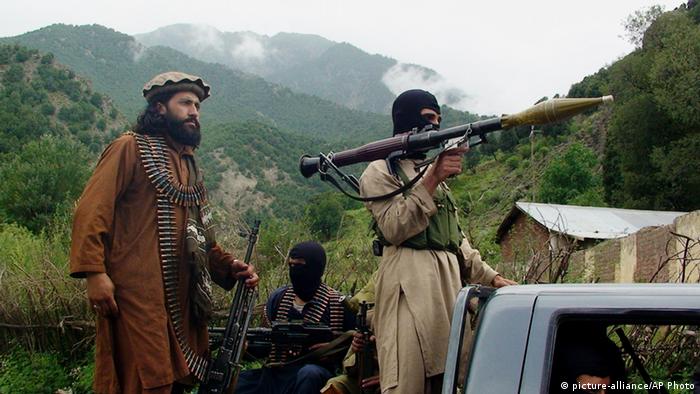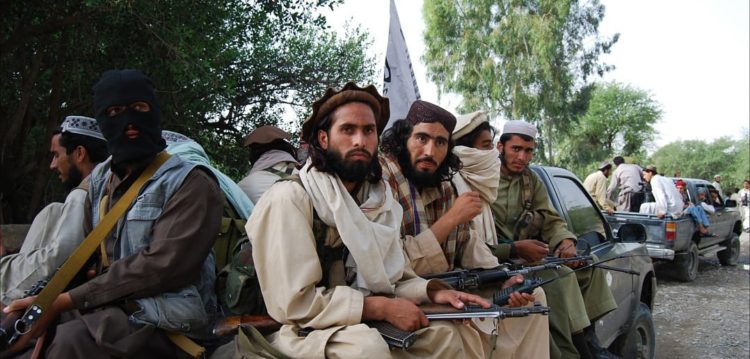Tehrik-i-Taliban Pakistan (TTP), also known as the Pakistani Taliban, had killed 5 Pakistani soldiers from across the border in neighboring Afghanistan, Pakistan officials said.
This report comes just a few days after the Baloch Liberation Army, a group that shares close ties with the TTP, had attacked Pakistani security forces located in the Panjgur and Noshki situated in Balochistan. As a result, as many as 20 militants and nine soldiers were killed after three days of military operations. The Pakistani government and their intelligence agency had stated that these assaults were linked with militants based in Afghanistan and India.

The TTP, categorized as an armed Pashtun Sunni Islamist terrorist group, is a fundamentalist movement that aims to overthrow the government of Pakistan. Its operation and homebase have been reported to be within the Afghanistan-Pakistan border, an ungoverned portion of land between the countries where it has historically maintained ties with al-Qaeda.
The terrorists, of whom were located within the Afghan-Pakistani border and within Afghanistan, opened fire on Pakistani soldiers deployed within the Khyber-Pakhtunkhwa province, Kurram. In retaliation, Pakistani troops also returned fire to the TTP, as the terrorist group openly claimed responsibility for the killings later on.
“Pakistan strongly condemns the use of Afghan soil by terrorists for activities against Pakistan and expects that interim Afghan Government will not allow the conduct of such activities against Pakistan, in future,” the Pakistani government stated.
This series of attacks from the terrorist group comes after the terrorists ended their unilateral ceasefire with the Pakistani government after just one month when it had come into effect last November 9, a ceasefire brokered by the Afghan Taliban. TTP had said in a statement that Islamabad was not cooperating with its own set of leadership and was not fulfilling any of its promises. On the other hand, the Afghan Taliban denied taking part in the attack despite the two groups being allied. It had also stated that the shots fired did not come from within their borders.
“We assure other countries, especially our neighbors, that no one will be allowed to use Afghan land against them,” said Afghan Taliban Government Deputy Spokesman Bilal Karimi in a statement released to Reuters.
It’s important to note that the two Taliban groups are similar in beliefs but do not share leadership and objectives. The two terrorist groups greatly differ in leadership. They do, however, share the same ideologies.
The TTP has its roots traced to the 2002 Pakistani military incursions against Afghan and Arab militants following the 2001 US invasion of Afghanistan. However, they were only officially recognized in 2007 when its former leader Baitullah Mehsud formed an alliance with Al-Qaeda. They soon would also form an alliance with the Afghan Taliban to combat the US-sponsored Afghan government in 2009, an alliance brokered by Abdul Qayyum Zakir. Zakir is now the Deputy Minister of Defense of Afghanistan. As a sign of mutual respect, the Taliban, upon gaining control over Afghanistan when the US had pulled out in August, released hundreds of TTP members imprisoned by the former Afghan government.
With its long history of terrorism, the Pakistani Taliban has its own share of gruesome killings. Alongside al-Qaeda and other terrorist groups, they have killed an estimated 80,000 Pakistanis, costing economic losses of up to or more than $150 billion.
In 2014, they were responsible for the Peshawar school massacre, one of the worst attacks against civilians in Pakistan’s history. With six armed militants, the Pakistani Taliban stormed the Army Public School in Peshawar opened fire on children and school staff, resulting in the deaths of over 150 innocent people, 134 of which were school children aged 8 to 18. The attack was said to be revenge against Operation Zarb-e-Azb, a military operation conducted by the Pakistan Armed Forces against multiple terror groups, including the TTP, al-Qaeda, and the Haqqani Network, to name a few. Ironically, the Haqqani Network reportedly used Pakistan as a safe haven, and it can be the case that Pakistan itself was a direct supporter of terrorist groups.
The group is also notoriously known for its attack on the CIA facility known as Camp Chapman, located within the Khost Province of Afghanistan, where Humam Khalil Abu-Mulal al-Balawi detonated a bomb he was wearing. The attack killed over 7 CIA operatives, an officer from Jordan’s intelligence service, and an Afghan working for the CIA.
With Pakistan’s government earlier offering amnesty to the TTP when the Afghan Taliban gained control of the state, it seems that violence among these groups will only rise. Pakistan and Afghanistan’s diplomatic relations will also decline due to the latter’s support for the Pakistani Taliban.










COMMENTS